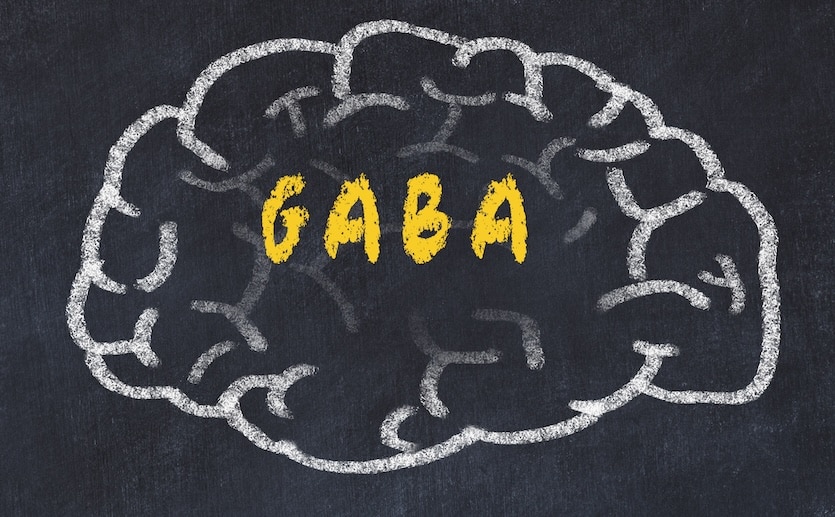
As modern neuroscience delves deeper into the complexities of the human brain, gamma-aminobutyric acid, or GABA, remains a key player in this intricate biochemical orchestra.
GABA has become a popular supplement ingredient because it promotes a calm nervous system and feelings of relaxation. If you’re curious about how it works, you’re in the right place. This article discusses your brain’s physiology, GABA’s role, and how to support healthy GABA levels in your brain.
What Is GABA?
GABA is an amino acid neurotransmitter, meaning it delivers messages from one nerve cell to the next. Specifically, GABA is an inhibitory neurotransmitter. It blocks messages and controls the speed at which communication takes place throughout the nervous system.
Your brain’s network of GABA-using neurons is the GABAergic system. Much like a brake pedal or a regulator, this system can:
- Slow down the flow of information
- Reduce the activity of other neurotransmitters
- Decrease the stimulation of nerve cells in the brain
Feelings of stress, anxiety, or fear are associated with nerve cell hyperactivity and over-stimulation. That’s why GABA is most-known for promoting relaxation and calm feelings.
GABA’s Health Benefits
Neuroscience can get quite technical. So, let’s zoom out and talk about the overall effect of GABA on your body and mind.
Mental Health
A big part of your mental well-being depends on your ability to process all the sensory information your brain is constantly receiving in an organized way. This is exactly what GABA does in the brain. When your GABA levels are healthy your nervous system can regulate itself, keeping your mind calm and balanced.
Sleep
GABA also plays a key role in sleep regulation. As bedtime approaches, your GABAergic system ramps up its activity, quieting your nervous system and promoting a sense of calm. This helps you transition from being awake into the first stage of sleep and so on. Hormones, like melatonin, work by targeting GABA receptors to increase the GABAergic system’s activity to calm your mind.
Alcohol
Alcohol is known to enhance GABAergic activity, which is partly responsible for its sedative effects. While a couple drinks may cause feelings of relaxation, chronic alcohol use can disrupt the GABAergic system. Over time heavy alcohol use may reduce the production of GABA in your brain and throughout your body. These effects increase the risk of mental health concerns, sleep issues, and alcohol abuse.
Get Your GABA Supplementation
Some GABA-rich food sources include brown rice, spinach, sweet potatoes, and broccoli. Various supplements are available, too. GABA is made in the body naturally, and supplementation is considered safe. It is recommended that anyone who is pregnant or breastfeeding should consult their primary care physician before taking GABA.
Studies have shown no major adverse effects from taking up to three grams of GABA in one day. The typical dosage in studies of long-term GABA use is around 120 milligrams. However, your specific dosage may vary by age, gender, and the reason you’re taking GABA. Read product labels carefully and follow their instructions—and always check with your doctor if you have any questions about what dosage is right for you.
A Path for Sustained Mental and Emotional Health
GABA is crucial to the intricate world of neurobiology. Its role as a neurotransmitter maintains the delicate balance between excitement and inhibition in your nervous system. As researchers continue to learn more about the human brain, GABA may provide a pathway towards sustained mental and emotional health for countless people.
References
